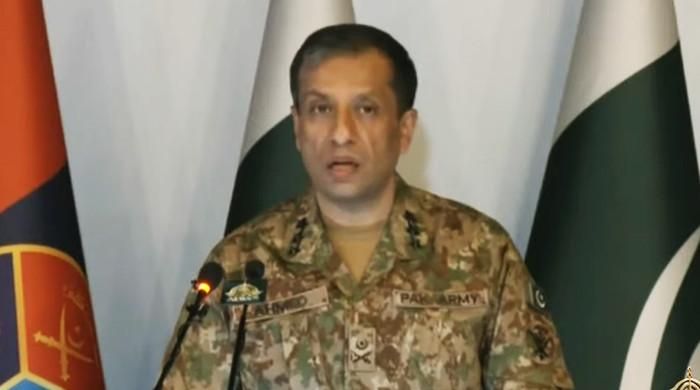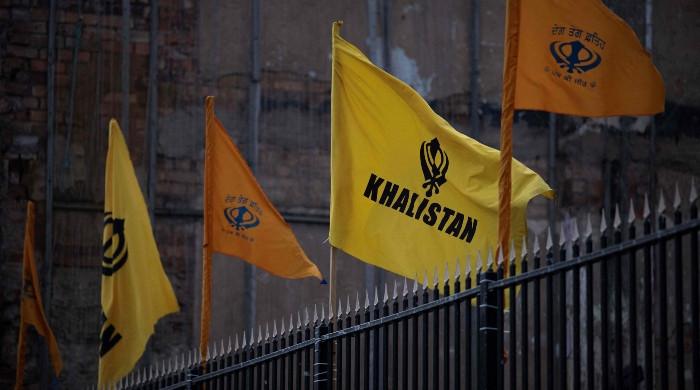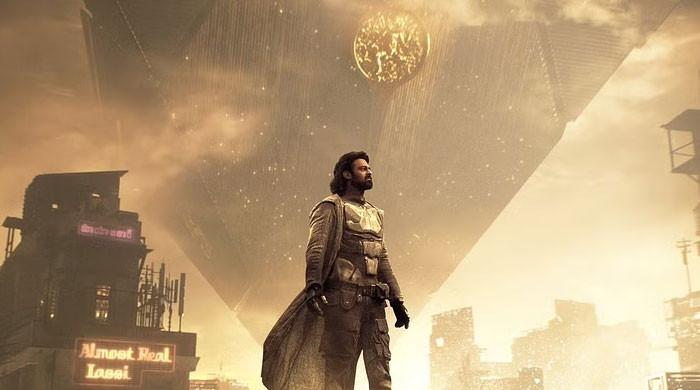RAWALPINDI: Director General Inter-Services Public Relations (DG ISPR) Lt Gen Ahmed Sharif Chaudhry on Monday said that unfortunately serious issues were also being politicised in Pakistan, presenting Azm-e-Istehkam as an example.
“Azm-e-Istehkam is a comprehensive and comprehensive anti-terrorist campaign, not a military operation per se as it is presented,” the ISPR Director General said during a press conference in Rawalpindi.
Recalling that a meeting of the Apex Committee, the country's top security body, was held in Azm-e-Istehkam on June 22, he said the statement after the meeting noted that “we have formulated an anti-terror policy with national consensus.”
Addressing concerns over the campaign, DG ISPR said there are no no-go zones across the country and clarified that there will be no further displacement due to Azm-e-Istehkam.
As there was much fuss over the newly announced campaign, the army spokesperson informed reporters that the Prime Minister's Office had issued a statement on June 24 to clarify the matter.
“Azm-e-Istehkam is not a military operation. Why has it become so controversial? There is a strong lobby that wants the objectives of Azm-e-Istehkam not to be fulfilled. It is being politicised.”
“Why did a mafia, a political mafia and an illegal mafia say they weren't going to let this happen?” [campaign] “What is happening?” he asked, adding that a certain political mafia wants to make Azm-e-Istehkam controversial.
Providing statistics on the ongoing operations, he said the army is carrying out four to five operations per hour on a daily basis, clarifying that the war against terror was already in full swing.
Security forces carried out 22,409 intelligence operations this year, he said, further explaining that the armed forces, police, intelligence agencies and other law enforcement agencies are conducting more than 112 operations daily.
“During these operations, 31 high-value targets have been killed. This year, 137 officers and soldiers have been killed,” the army spokesman told reporters.
Lt Gen Chaudhry said the army had cleared several areas of terrorists, but if governments do not ensure reconstruction of those areas, then the army will have to deploy its forces there to “control the area.”
“The army is clearing the areas, holding them, and then it is the job of the provincial government to build and transfer. If it is not built and transferred to the population, then the terrorists will emerge again and it will continue in a vicious circle of 'clearing and holding.'”
The ISPR DG explained that if such a cycle continues, then it will be easier for certain elements to incite the locals of the area against the army and a false narrative would also be created against the forces.
“In conclusion, Azm-e-Istehkam is a comprehensive campaign against terrorism. If we carry it out, it will not only end terrorism but also the country. The stakes are high.”
What happened in Bannu?
At a press conference on July 15, eight soldiers committed martyrdom and sent “all terrorists to hell.” He told reporters that Sepoy Saqib threw himself on the grenade to save everyone else.
“The next day, the people of Bannu organised a march expressing their desire for peace. Some armed personnel also participated in the march,” the ISPR director general said.
Giving details of the march, in which one person was killed and several others injured, he said protesters tore down a wall under construction and looted a supply depot.
“Some armed persons opened fire, leading to loss of lives. In Bannu, the army personnel followed their SOPs of response accordingly. Similarly, people had also raised questions as to why the army did not fire on May 9.”
Explaining the army's standard operating procedure, he said that if an “anarchist group” approaches a military installation, it is first given a warning and then dealt with.
“It is the job of the provincial government to control the crowd, not the army. However, at the same time, people can certainly hold their peace march,” the spokesman said.
While showing images of the Bannu incident and saying that armed personnel could be seen, he stressed: “Hold demonstrations against terrorists.”
He said that as soon as this incident occurred, there was an uproar on social media. “This shows how digital terrorists support terrorists on the ground.”
Audio of TTP leader leaked
Asked what action Pakistan would take after the leaked audio of Tehreek-e-Taliban Pakistan (TTP) chief Noor Wali Mehsud came to light, he said authorities were investigating the matter.
Sources had previously reported Geo news that the government will not only seek extradition of the terrorists from Afghanistan but will also lodge a strong protest before the Afghan Taliban-led interim administration over the presence of the TTP chief in the country and his direct involvement in terror attacks inside Pakistan.
A disturbing phone call emerged showing Noor giving instructions to his henchmen to carry out attacks in Pakistan.
The other voices in the audio call were identified as local commanders Ahmad Hussain Mehsud alias Ghat Haji and Saqib Gandapur.
The conversation revolves around the TTP chief's orders on how to aggravate the security situation in the country. In that conversation, he can be heard outlining two main methods to disrupt peace and order in Pakistan.
Speaking about the audio call, the lieutenant general said Mehsud could be heard ordering his men to blow up hospitals and schools, but he did not name him.
“They don't even have the courage to take responsibility for their actions,” he said.
TLP sit-in
Briefing reporters on the recent sit-in by Tehreek-e-Labbaik Pakistan (TLP), he said the government and institutions were trying to resolve the issue keeping in mind the “sensitivity and emotions” of the people regarding the Palestinian issue.
He dismissed the role of the establishment in the sit-in and said that tomorrow if Jamaat-e-Islami were to stage a sit-in in Islamabad, people would still claim that the army was behind it.
“There is so much fake news that people keep saying what they want. Since the protesters peacefully cleared the area, there has been talk that there is 'someone's hand' behind all this,” he added.
The military spokesman added that the army and the government have a very clear position on the Palestinian issue and stressed that a genocide was taking place in Gaza.
“The genocide in Gaza is absolutely unacceptable. We have sent 1,118 tons of aid to Gaza,” he said, pledging continued support for oppressed Palestinians.
At least 39,006 Palestinians have been killed and 89,818 wounded in the Israeli military offensive in Gaza since October 7, the Gaza Health Ministry said in a statement on Monday.
But to continue…











